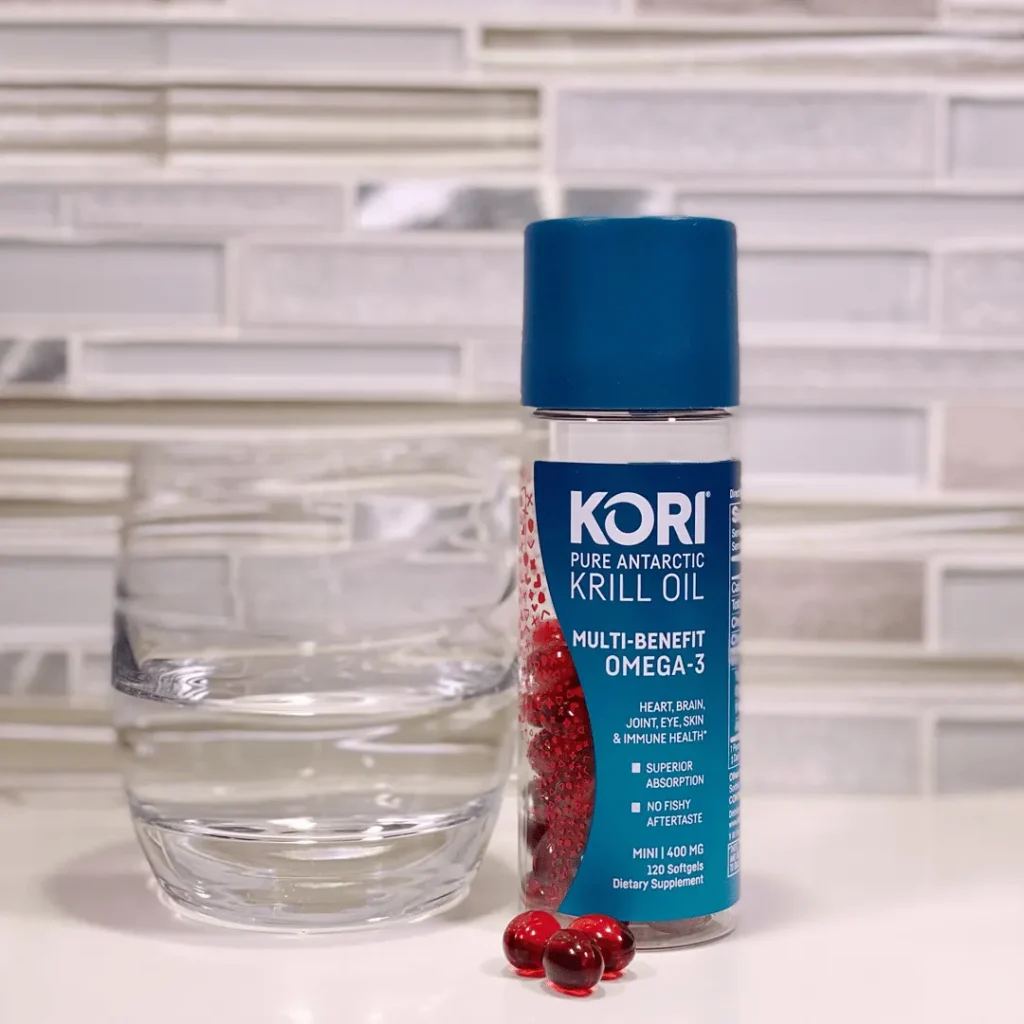In today’s context, the growing concern over unwanted weight gain has led to a burgeoning industry offering solutions ranging from products and supplements to exercise programs, all promising to curb appetite, melt away fat, and sculpt muscles. As individuals grapple with weight management, the conversation extends beyond traditional lifestyle approaches. Recent research delves into areas beyond conventional wisdom, exploring factors that may contribute to weight gain.
The societal fixation on weight prompts individuals to explore diverse avenues in their quest for a healthier physique. The market is flooded with an array of products and programs, enticing individuals with promises of quick fixes and transformative results. These efforts often reflect a broader societal desire for attainable solutions to the pervasive issue of weight management.
Beyond the well-trodden paths of diet and exercise, recent investigations have broadened the scope to consider additional factors that may influence weight gain. Among these emerging factors, inflammation has garnered attention as a potential contributor to the complex interplay of variables influencing body weight.
Inflammation, traditionally viewed as the body’s response to injury or infection, is now being scrutinized for its possible role in weight regulation. Scientific inquiries have delved deep into the intricate ways inflammation impacts the body’s complex systems. This article aims to provide a nuanced exploration of the multifaceted effects of inflammation, emphasizing its potential significance in the broader conversation about weight gain and overall well-being.
Understanding the dynamic relationship between inflammation and weight gain requires a closer examination of lifestyle choices, dietary habits, and environmental factors. This introductory glimpse into the societal concerns surrounding weight gain sets the stage for a deeper exploration, touching upon the various avenues people explore to address this concern and paving the way for a focused discussion on the potential impact of inflammation in the subsequent sections.
You May Also Like:
The Best Women’s Probiotic For Weight Loss Countdown – Top 5 Brands Reviewed
Finding the Best Women’s Protein Powder: 5 Top Brands Reviewed
Can inflammation cause weight gain: understanding inflammation
Inflammation is the body’s natural response to injury, infection, or harmful stimuli, serving as a vital defense mechanism for healing and protection. Initiated by the immune system in response to damaged cells, pathogens, or irritants, this process is crucial for the body’s well-being.
Acute inflammation, a localized and short-term response, manifests as redness, swelling, heat, and pain at the affected site. It is an immediate and focused reaction essential for isolating and eliminating the source of harm, facilitating rapid healing.
However, when inflammation becomes chronic due to long-term exposure to environmental toxins, poor diet, lack of exercise, chronic stress, or underlying health conditions, it can lead to various health issues. Unlike acute inflammation, chronic inflammation is often low-grade and systemic, affecting the entire body.
The inflammatory response involves immune cell activation, release of signaling molecules (cytokines), and increased blood flow to the affected area, designed to clear damaged cells and initiate tissue repair. Acute inflammation naturally subsides once the threat is neutralized, and the body regains balance.
Chronic inflammation, however, can perpetuate a cycle of tissue damage and repair. This persistent immune system activation disrupts normal bodily functions, contributing to disease development. For example, inflammation is closely linked to insulin resistance, a precursor to type 2 diabetes.

Can inflammation cause weight gain: inflammation and weight gain
Chronic inflammation, stemming from lifestyle choices and environmental factors, emerges as a potential contributor to the complex issue of weight management. Research has also increasingly highlighted the potential link between chronic inflammation and weight gain, unveiling the intricate interplay between these factors.
In chronic inflammation, the continuous release of signaling molecules, such as cytokines, interferes with hormones regulating metabolism and appetite, notably disrupting insulin and leptin. Insulin resistance, a consequence of chronic inflammation, hampers cells’ responsiveness to insulin, contributing to challenges in maintaining a healthy weight. This disruption impairs insulin signaling, leading to increased fat storage and compromised energy utilization.
Additionally, chronic inflammation activates specific immune cells that promote fat storage, releasing chemicals that encourage the accumulation of fat cells, particularly in the abdominal area. Visceral fat, stored around internal organs, is linked to an elevated risk of metabolic disorders and cardiovascular diseases, emphasizing inflammation’s potential impact on weight-related health concerns.
The connection between inflammation and weight gain underscores the importance of mitigating chronic inflammation for effective weight management. Lifestyle modifications, such as incorporating anti-inflammatory foods into the diet and engaging in regular physical activity, are pivotal measures. Maintaining a balanced intake of omega-3 and omega-6 fatty acids is crucial, as the Western diet often tilts toward an excess of omega-6-rich oils in processed and fried foods.
Understanding the link between inflammation and weight gain offers valuable insights. By addressing chronic inflammation through informed lifestyle choices, individuals can proactively work toward achieving and sustaining a healthy weight, contributing to overall well-being.

Can inflammation cause weight gain: holistic prevention
Mitigating chronic inflammation requires a proactive approach involving dietary choices and regular physical activity. Omega-3 fatty acids, prominently found in fatty fish, flaxseeds, and walnuts, have gained recognition for their anti-inflammatory properties. Particularly, eicosapentaenoic acid (EPA) and docosahexaenoic acid (DHA) showcase anti-inflammatory effects by acting on inflammatory pathways, potentially reducing the production of pro-inflammatory molecules and promoting a balanced immune response. Including omega-3-rich foods or supplements, such as Kori Krill Oil, in the diet may contribute to maintaining a healthy inflammatory balance.
Balancing omega-3 intake with omega-6 fatty acids is crucial, as the typical Western diet often leans toward omega-6-rich oils found in processed and fried foods. Restoring this balance through a diet rich in omega-3 sources contributes to an overall anti-inflammatory effect.
In addition to dietary considerations, regular physical activity emerges as a powerful tool in combating inflammation. Exercise demonstrates anti-inflammatory effects by modulating the release of inflammatory molecules and promoting the secretion of anti-inflammatory substances. Both aerobic exercises, such as walking or jogging, and resistance training contribute to these benefits.
Regular exercise not only aids in weight management but also positively influences inflammatory markers. By reducing the overall inflammatory load in the body, exercise becomes a cornerstone in the broader strategy of preventing chronic inflammation. Advocates for heart health advise engaging in a minimum of 150 minutes (about two and a half hours) of moderate-intensity exercise each week, emphasizing its significance not only in managing inflammation but also in promoting cardiovascular well-being.
Combining efforts to incorporate anti-inflammatory foods rich in omega-3 fatty acids and maintaining a regular exercise routine significantly contributes to preventing chronic inflammation. These lifestyle choices not only enhance overall health but also address the potential link between inflammation and weight gain, providing practical tools for individuals to navigate toward optimal wellness.

Can inflammation cause weight gain: incorporating supplements
Incorporating supplements into a healthy lifestyle can be a beneficial strategy for preventing inflammation and promoting overall well-being. However, it’s crucial to recognize that not all omega-3 supplements are equal. Omega-3 supplements with phospholipids, naturally found in krill oil, offer distinct advantages. As krill oil delivers EPA and DHA bound to phospholipids, the body is able to absorb these essential fatty acids more easily. This makes krill oil a harder-working omega-3 source compared to traditional fish oil.
The unique structural advantage of omega-3s found in krill oil contributes to their enhanced bioavailability. By being bound to phospholipids, they facilitate better absorption in the body, which in turn optimizes their effectiveness in modulating the immune response, curbing the synthesis of pro-inflammatory substances, and fostering a balanced inflammatory state within the body.
Additionally, omega-3 phospholipids have been associated with cardiovascular health, potentially aiding in maintaining healthy cholesterol levels and supporting overall cardiovascular function. Their unique structural composition facilitates the targeted delivery of omega-3s to vital organs, optimizing their impact on holistic health.
Increasing the daily intake of omega-3, whether derived from dietary sources or supplements, becomes a pragmatic approach for individuals seeking to manage inflammation, support cardiovascular health, and enhance overall well-being. The incorporation of omega-3 into a supplement routine aligns with broader efforts to maintain a healthy lifestyle, offering potential benefits in inflammation prevention and supporting the body’s vital functions.

Can inflammation cause weight gain: introducing Kori Krill Oil—pure krill oil
When it comes to addressing chronic inflammation and fostering overall well-being, Kori Krill Oil supplements emerge as a practical and accessible solution. Focused on delivering the benefits of omega-3 phospholipids, this supplement stands out for its unique composition and potential impact on inflammation management.
Derived from Antarctic krill, Kori Krill Oil is rich in omega-3 fatty acids, particularly EPA and DHA, which are essential for maintaining a balanced inflammatory response in the body. What sets this supplement apart is its phospholipid structure—a unique feature that enhances the bioavailability and absorption of omega-3s. Unlike traditional fish oil supplements, where omega-3s are bound to triglycerides, the phospholipid-bound omega-3s in the supplement are readily absorbed by the body’s cells, optimizing their anti-inflammatory effects.
The anti-inflammatory properties of Kori Krill Oil may play a pivotal role in mitigating the impact of chronic inflammation. By modulating the body’s immune response and influencing the production of inflammatory molecules, omega-3 phospholipids may contribute to maintaining a healthy balance within the body. A balanced inflammatory state is crucial for preventing the potential cascade of health issues linked to chronic inflammation, including weight gain and various chronic diseases.
Moreover, Kori Krill Oil goes beyond its anti-inflammatory benefits, potentially supporting cardiovascular health. Research suggests that omega-3s may contribute to managing cholesterol levels and promoting cardiovascular well-being. The phospholipid structure of Kori Krill Oil may further enhance the delivery of these essential fatty acids to vital organs, maximizing their impact on overall health.
Incorporating Kori Krill Oil into an individual’s diet emerges as a practical and effective approach to promoting overall wellness. Whether as a complement to dietary sources of omega-3s or as a standalone supplement, this supplement provides a reliable source of omega-3 phospholipids, emphasizing its dedication to inflammation management and the broader goal of supporting health from within.
Kori Krill Oil stands out as a preferred supplement for omega-3 phospholipids, offering a concentrated and reliable source to help manage inflammation. Sourced with sustainability and purity standards in mind, Kori Krill Oil ensures a top-notch product, providing individuals with a trustworthy option for supporting overall well-being through the benefits of omega-3 fatty acids.
Nonetheless, it’s important to note that health supplements are not FDA-approved; they cannot diagnose, treat, or cure any disease or health condition. Supplements should be used only as an adjunct to conventional treatment under the supervision of a healthcare professional.

Can inflammation cause weight gain: the journey to wellness
In the pursuit of optimal wellness, unraveling the intricate relationship between inflammation and its potential impact on weight gain becomes crucial. Chronic inflammation, arising from various lifestyle factors and environmental influences, emerges as a significant determinant of overall health with the potential to influence weight gain.
As we navigate both inflammation and weight management, it is evident that a multifaceted approach is key. The link between inflammation and weight gain emphasizes the importance of adopting lifestyle choices that address the root causes of chronic inflammation. From dietary considerations and exercise routines to mindful eating habits, each facet plays a crucial role in promoting a balanced inflammatory state within the body.
A standout player in this wellness journey is the incorporation of omega-3 fatty acids. Whether through dietary sources or supplements, omega-3s contribute to managing chronic inflammation, a cornerstone in preventing the potential cascade of health issues linked to weight gain and chronic diseases.
The proactive integration of omega-3s aligns with a practical and effective strategy for overall wellness. Beyond their anti-inflammatory benefits, omega-3s may also support cardiovascular health, further underlining their role as comprehensive contributors to well-being.
In forging a path to optimal wellness, individuals are empowered with knowledge and practical tools. By adopting a holistic approach that encompasses dietary adjustments, regular exercise, mindful eating habits, and the strategic use of omega-3s, individuals can navigate toward sustained well-being. It is through these informed choices and proactive measures that the intricate dance between inflammation and weight management can be harmonized, paving the way for a healthier and more balanced lifestyle.

Further reading:
Archives of Medical Science. Obesity and inflammation: the linking mechanism and the complications
HHS Public Access. Chronic inflammation in the etiology of disease across the life span
Nutrients. Omega-3 Fatty Acids and Inflammatory Processes
Oncotarget. Inflammatory responses and inflammation-associated diseases in organs
Important Note: The information contained in this article is for general informational purposes only, and should not be construed as health or medical advice, nor is it intended to diagnose, prevent, treat, or cure any disease or health condition. Before embarking on any diet, fitness regimen, or program of nutritional supplementation, it is advisable to consult your healthcare professional in order to determine its safety and probable efficacy in terms of your individual state of health.
Regarding Nutritional Supplements Or Other Non-Prescription Health Products: If any nutritional supplements or other non-prescription health products are mentioned in the foregoing article, any claims or statements made about them have not been evaluated by the U.S. Food and Drug Administration, and such nutritional supplements or other health products are not intended to diagnose, treat, cure, or prevent any disease.



